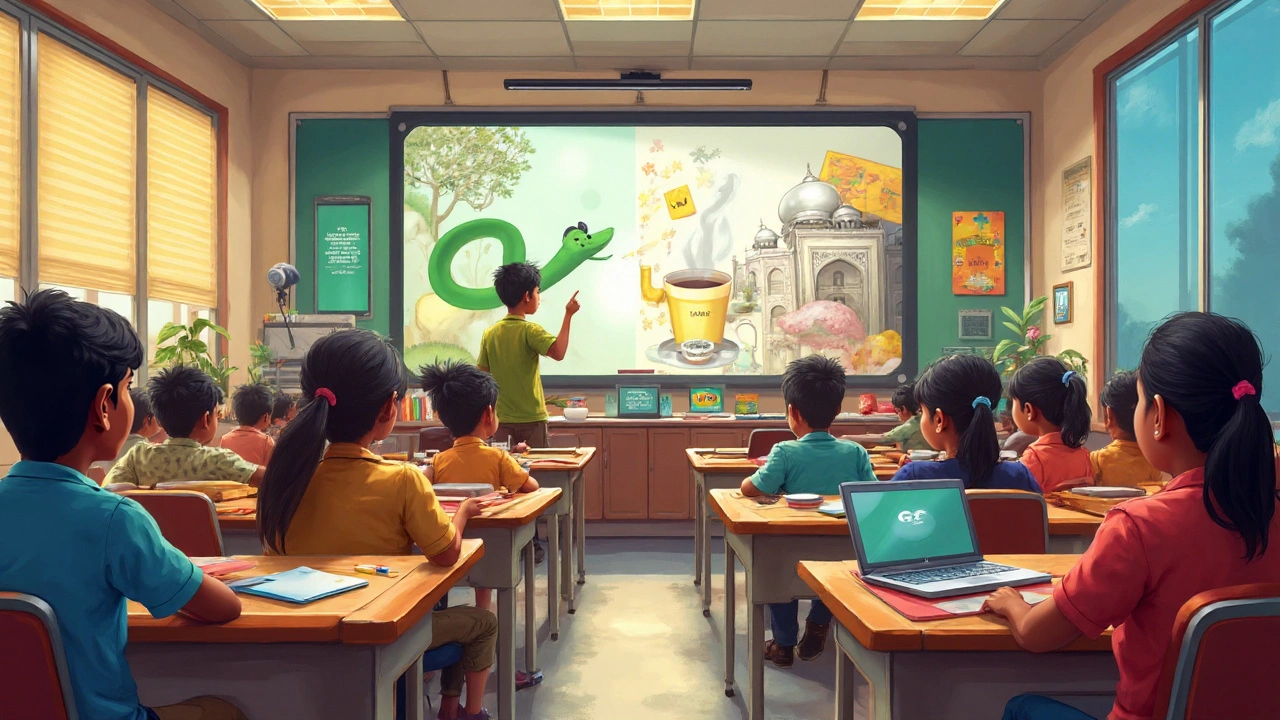First Language Recommendation Quiz
Programming language is a formal set of instructions that computers can execute to perform tasks. Choosing the right one as your entry point shapes your career, confidence, and the projects you can build.
Why the Choice Matters
When you start coding, you’re not just learning syntax-you’re joining a community, adopting a workflow, and opening doors to specific job markets. A language that’s in high demand, has abundant learning resources, and aligns with what you want to build will accelerate your progress.
How to Pick Your First Language
- Goal‑oriented focus: Do you want to build websites, automate tasks, create games, or dive into data science?
- Job market health: Look at recent surveys (Stack Overflow 2024, GitHub Octoverse 2024) for hiring trends.
- Learning curve: Some languages read like English, others demand a deeper understanding of memory management.
- Ecosystem & community: Active forums, open‑source libraries, and mentorship opportunities matter.
With these criteria, four languages consistently top the list for beginners in 2025.
Top Four First Languages in 2025
Python is a high‑level, interpreted language celebrated for its readability and versatility. It powers data science, web back‑ends (Django, Flask), automation scripts, and even AI research.
JavaScript is a client‑side scripting language that runs in every modern web browser. Together with Node.js, it powers full‑stack development, interactive UI, and serverless functions.
Java is a class‑based, object‑oriented language designed for portability across platforms. It dominates enterprise back‑ends, Android apps, and large‑scale systems.
C++ is a compiled language that offers fine‑grained control over memory and performance. It’s essential for game engines, real‑time simulations, and high‑frequency trading.
Quick Comparison
| Language | Typical Use Cases | Job Market Demand | Learning Curve (1‑easy to 5‑hard) |
|---|---|---|---|
| Python | Data science, web back‑end, automation, AI | High (45% of 2024 Stack Overflow respondents use it) | 1 |
| JavaScript | Web front‑end, full‑stack (Node.js), mobile hybrid apps | Very High (78% of web projects rely on it) | 2 |
| Java | Enterprise back‑end, Android, large‑scale services | High (30% of corporate hiring posts) | 3 |
| C++ | Game development, systems programming, finance | Moderate (specialized but well‑paid roles) | 4 |

Related Tools & Concepts
Picking a language is just step one. The surrounding ecosystem determines how smoothly you can turn ideas into reality.
- Visual Studio Code is a free, extensible code editor with built‑in support for Python, JavaScript, Java, and C++. Its marketplace offers linters, debuggers, and live‑share for collaboration.
- Git is a distributed version‑control system that tracks changes and enables team workflows. Mastering
git commitandpushearly prevents future headaches. - Stack Overflow is a question‑and‑answer platform where developers share solutions. Reading accepted answers helps you adopt best practices.
- Online learning platforms such as Coursera, Udemy, and freeCodeCamp provide structured curricula and hands‑on projects.
- Community meet‑ups (meetup.com) and local hackathons in Sydney or Melbourne give you real‑world feedback.
Blueprint: Your First 100‑Hour Learning Path
- Week 1-2 (10hrs): Install VSCode, set up Git, and complete a "Hello World" tutorial in your chosen language.
- Week 3-4 (20hrs): Finish an introductory course (e.g., Python’s "Automate the Boring Stuff" or JavaScript’s "JavaScript30"). Build a simple CLI tool or interactive webpage.
- Week 5-6 (20hrs): Dive into a small project that solves a personal problem-automate a spreadsheet, scrape a website, or create a personal blog.
- Week 7-8 (20hrs): Learn core concepts: loops, functions, data structures, and error handling. Use tutorials from official docs.
- Week 9-10 (20hrs): Explore libraries/frameworks relevant to your goal: Django for Python, React for JavaScript, Spring Boot for Java, or SDL for C++.
- Week 11-12 (10hrs): Refactor your project, add tests, and publish to GitHub. Write a short README to showcase your work.
By the end of 100hours you’ll have a polished piece of code, a public repo, and confidence to tackle more complex challenges.
Common Pitfalls and How to Avoid Them
- Skipping fundamentals: Jumping straight to frameworks leaves gaps. Always master variables, control flow, and basic data structures first.
- Copy‑pasting without understanding: It builds a false sense of competence. Pause after each code snippet and explain it aloud.
- Ignoring version control: Even a single‑file project benefits from Git history. Commit early, commit often.
- Choosing based on hype alone: Trendy languages may be flashy but not aligned with your goals. Match the language to the domain you care about.
Next Steps After Your First Language
Once you’re comfortable, consider branching out:
- Learn a second language that complements the first (e.g., Python + JavaScript for full‑stack).
- Dive deeper into algorithms and data structures-essential for technical interviews.
- Explore cloud services (AWS, Azure) and deployment pipelines.
- Contribute to open‑source projects to build credibility.
Remember, programming is a marathon, not a sprint. The first programming language you master sets the rhythm; keep the momentum going.
Frequently Asked Questions
Is Python still the best language for absolute beginners in 2025?
Yes, Python remains the top pick for newcomers because its syntax mirrors plain English, it has a massive library ecosystem, and the 2024 Stack Overflow Survey shows it as the most used language among newcomers. It’s ideal for scripting, data work, and web back‑ends.
Should I learn JavaScript before Python if I want to build websites?
If your primary goal is front‑end web development (interactive UI), start with JavaScript. It runs natively in browsers and powers frameworks like React. You can later add Python for server‑side logic.
How important is Git for a beginner?
Git is essential from day one. It lets you track changes, revert mistakes, and showcase your work on GitHub-a key part of a developer’s portfolio.
Can I learn C++ without a computer science background?
You can, but expect a steeper learning curve. Focus on core concepts such as memory management and pointers, and use beginner‑friendly resources like "C++ for Everybody".
What free resources are best for learning my first language?
For Python, try "Automate the Boring Stuff" (free ebook) and the official tutorial. For JavaScript, freeCodeCamp’s curriculum is excellent. Both have active Discord communities for instant help.
